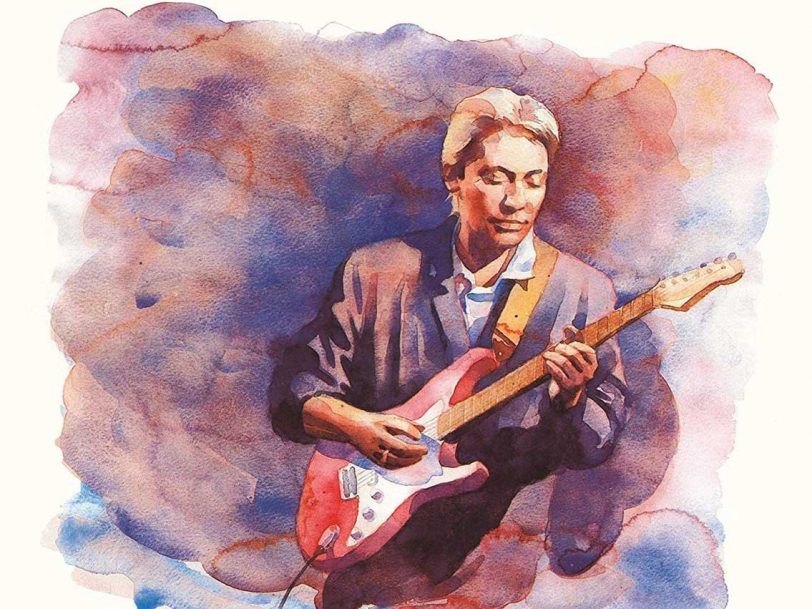For a man so steeped in the blues, it was inevitable that Chris Rea would find himself at a crossroads or two. It was 1987 and the guitarist was putting together Dancing With Strangers, his ninth album in as many years. His home town of Middlesbrough, in England’s rugged North East, was noted for its hard-grafting blue-collar folk, and that gave Rea a rare work ethic in rock’n’roll. It also offered him a perspective on life: far from being a spoilt rock brat, he’d earned his success, building a following that had seen successive albums sell in increasing volumes. Yet he was still to really break big.
Listen to ‘Dancing With Strangers’ here.
Born in hard times
Rea had had the judgement to sign with a label happy to support him as he gradually rose to prominence. Though the company, Magnet, had enjoyed numerous hits in the 70s and 80s, Rea, primarily an albums artist, represented something of a departure from the label’s singles-chart norm. Clearly, he made the catalogue far more valuable, but he’d been teetering on the verge of superstardom since his debut album’s single, Fool (If You Think It’s Over), landed him a US smash in 1978. It had been his first career crossroads: he could have chosen to burn himself out on endless US tours, which would likely kill his creativity, inspired as it was by his life back home. Instead, Rea elected to stay put and craft a series of quality records that rose in profile until 1985’s Shamrock Diaries broke the UK Top 20. The following year, On The Beach made No.11. He might have shrugged at industry expectations, but the question remained: was Chris Rea finally going to become the major-selling artist he had the potential to be? Dancing With Strangers would answer any remaining doubts once and for all. But ill luck – or, perhaps, Bad timing – would conspire to prevent this dazzling showcase of Rea’s mature talents from receiving a record’s most visible proof of success.
It’s a brave man who releases an album in the autumn and opens it with a Christmas song. But The Joys Of Christmas doesn’t remotely resemble Rea’s earlier seasonal hit, Driving Home For Christmas. Dancing With Strangers’ unseasonal seasonal song is about suffering and being a product of a grim environment. Amid searing guitar breaks and a brooding dark groove, Rea tells of the joys of Christmas, “Northern style” – though you’d be hard pressed to find traditional jingly joy in a lyric that tells of “tough guys still not 25 dying on their feet”. Rea later recalled it as portraying “the Christmas I knew” while growing up. Putting this at the start of the album speaks volumes: this record is not going to duck the realities of life. The blues was born in hard times, and the hard times don’t stop when Santa’s around.




